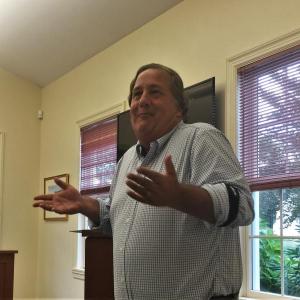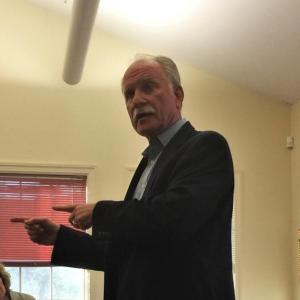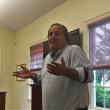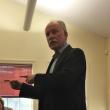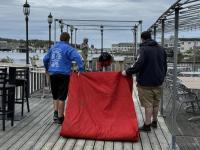Towns talk approach to broadband
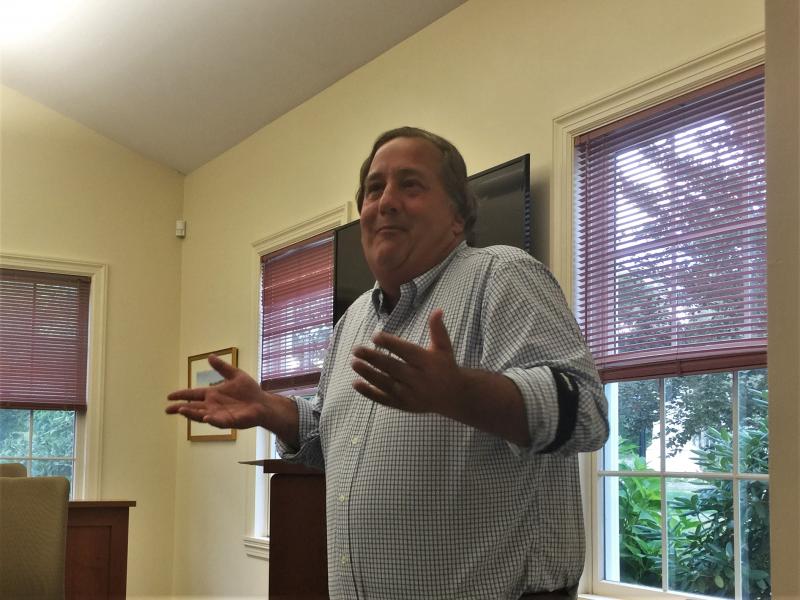 Axiom’s Mark Ouellette speaks about the importance of setting goals before talking money. JOSEPH CHARPENTIER/Boothbay Register
Axiom’s Mark Ouellette speaks about the importance of setting goals before talking money. JOSEPH CHARPENTIER/Boothbay Register
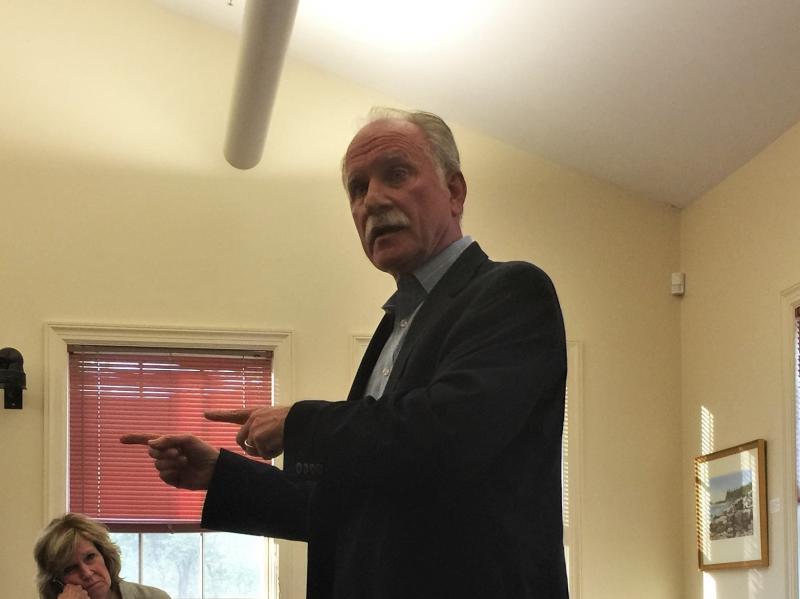 UniTek’s Larry Sterrs said that after identifying the gaps in the network, a community should talk to its providers before seeking alternatives. JOSEPH CHARPENTIER/Boothbay Register
UniTek’s Larry Sterrs said that after identifying the gaps in the network, a community should talk to its providers before seeking alternatives. JOSEPH CHARPENTIER/Boothbay Register
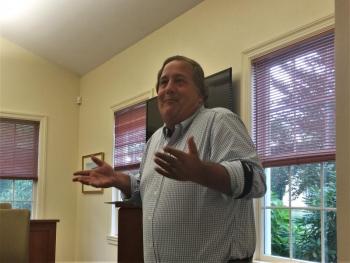 Axiom’s Mark Ouellette speaks about the importance of setting goals before talking money. JOSEPH CHARPENTIER/Boothbay Register
Axiom’s Mark Ouellette speaks about the importance of setting goals before talking money. JOSEPH CHARPENTIER/Boothbay Register
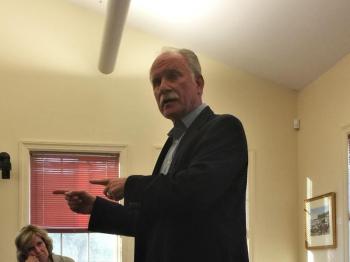 UniTek’s Larry Sterrs said that after identifying the gaps in the network, a community should talk to its providers before seeking alternatives. JOSEPH CHARPENTIER/Boothbay Register
UniTek’s Larry Sterrs said that after identifying the gaps in the network, a community should talk to its providers before seeking alternatives. JOSEPH CHARPENTIER/Boothbay Register
The enemy for any broadband network expansion is distance and volume, said UniTek’s Larry Sterrs at a joint Boothbay-Boothbay Harbor broadband workshop. The Joint Economic Development Committee (JEDC) recently tasked both towns' selectmen with identifying their community's top goals from the economic master plan. One goal the towns shared as a priority was broadband access and expansion. Spearheading the research and outreach are Boothbay Selectman Kristina Ford and JEDC member Steve Malcom who invited Sterrs and Axiom’s Mark Ouellette to speak at the Sept. 4 workshop.
Sterrs said that when thinking about economic development, broadband should be on the list though it is not usually a top priority. That is, cost is usually the factor that lowers its priority since it is capitally intensive and payback is over a long term.
First, a town should decide where on that list of priorities broadband sits before deciding how much should be invested and seeking financial and technical expertise, said Sterrs. Then, after identifying crucial gaps in the network, it is critical to talk to the area's providers.
“The question you've got to ask yourself is 'Do you want everybody in your community to have it?' And if you are going to stop somewhere, why? That's a really important question especially if you're going to use a tax base as one way of funding expansion.”
Ouellette said the workshop was really the first step, so the fundamental question is now “What's the problem," and when the idea of broadband comes up as a problem, it usually means “my internet connection stinks.”
“That’s not a goal,” said Ouellette, adding, internet connectivity is a means to an end and means something different for everybody.
“It's sort of how you think about electricity or flushing the toilet – it just kind of has to happen. For you to have a viable life today, having internet connectivity is getting more and more important every day exponentially.”
Ouellette has three rules for approaching broadband expansion: the Tom Brady rule, the Lady Gaga rule, and the “Don't think about money” rule.
The Tom Brady rule dictates a need for “a champion,” somebody who carries the torch on the issue and is relentless toward fulfilling the desired outcome.
Ouellette pulls the Lady Gaga rule straight from her lyrics: “I've got a hundred million reasons to walk away/But baby, I just need one good one to stay.” Broadband is expensive and takes significant energy to move along, but those are reasons not to do something, said Ouellette, and that is what leads to his third rule: not to think about money at all.
“Money colors everything. It changes whole conversations … Cost is important, money is important, it will be important, but it shouldn't be in the way of you setting good goals to achieve what you want to achieve.”
There will always be someone who dominates the conversation with experience in the quickly changing area of technology, said Ouellette, and it is usually used to slow down or halt efforts.
“Let me just end that right now by telling you that you have three big choices,” said Ouellette.
The first is to work with current internet service providers (ISP's) no matter what their technology. Should the towns choose to invest in a new network, the second and third choices will be wireless or fiber optic connections.
Ouellette said the difference between a wireless connection and fiber optic is, fiber will likely cost three to four times as much to serve the same number of people over the same area. The upside to fiber is it typically is faster and more consistent.
BRTV’s Cody Mitchell asked the value or need to invest in a new infrastructure versus leveraging current providers to expand their network.
Sterrs said building a brand new infrastructure from scratch is the last thing the towns should want to do. With data and information, communities can better communicate with existing providers and possibly find ways to expand the network which would also benefit the company's bottom line. Sterrs said providers are generally interested in talking because they already have an investment they are trying to get a return on.
“What gets them in the room is 'I've got a plan, I've got a vision, I've got something I want to accomplish … and I've got a little bit of money,” said Sterrs.
Boothbay resident Frank Fassett said that with all the ins and outs of broadband service, it seems as though the steps forward are simple enough: Form a committee, form goals, and put out a request for proposals.
Said Fassett, “The (providers) we have now, I would assume would try extra hard because they've got the infrastructure in place, we'd send it to you, … LCI … Spectrum … From that, they're going to give us 'Well, we can't do that, but we can do this.' We're going to learn a lot from doing that … Is it any more difficult than that?”
Ouellette and Sterrs said that just about sums it up.
With a potential $15,000 Maine Community Foundation grant hanging in the balance and the application due by mid-October – Ford said it is pretty clear the boards should advertise for people to join a broadband committee. Sterrs said bringing the region together and funding a broadband committee would show good faith in the application process.
Event Date
Address
United States

